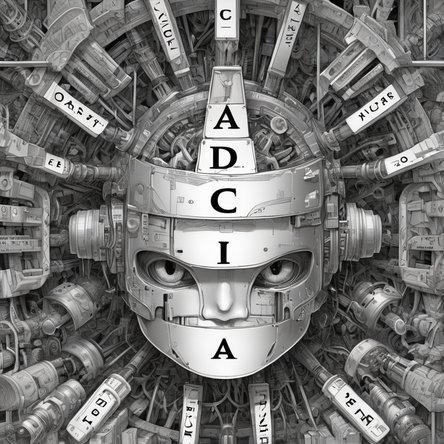Understanding the Concept of Captchas
The Internet is filled with automated scripts and bots that can perform repetitive tasks at an incredibly fast rate. These bots can be used for beneficial purposes, such as indexing web pages for search engines, but they can also be used for malicious activities like spamming, scraping content, or performing brute-force attacks. To mitigate such risks and ensure that online interactions are performed by humans rather than bots, developers have devised a system known as CAPTCHA (Completely Automated Public Turing test to tell Computers and Humans Apart).
The Purpose of Captchas
CAPTCHAs serve a critical role in maintaining the security and integrity of online platforms. Their primary purpose is to differentiate between human users and automated scripts. By doing so, CAPTCHAs help prevent abuse from bots that might otherwise exploit various services on the internet. For example, CAPTCHAs can stop bots from creating multiple email accounts, posting spam comments on blogs, or participating in fraudulent voting in online polls.
Types of Captchas
Text-based Captchas
The most common type of CAPTCHA is text-based. This involves displaying a sequence of distorted characters that users must correctly identify and type into a form field. The distortion is intended to make it difficult for automated scripts to read the text, while still being recognizable to human users. Over the years, text-based CAPTCHAs have evolved to include various types of distortions, background noises, and overlapping characters to increase their complexity and effectiveness.
Image-based Captchas
Image-based CAPTCHAs require users to identify images that meet certain criteria. For example, users might be asked to select all images that contain a specific object, such as cars or traffic lights. This type of CAPTCHA leverages the human brain's superior ability to recognize visual patterns compared to machines.
Audio Captchas
Audio CAPTCHAs are designed to be accessible to visually impaired users. These CAPTCHAs present a sequence of spoken characters or words that users must listen to and then enter into a form. The audio is often distorted with background noise to prevent automated scripts from easily recognizing the spoken content.
Mathematical Captchas
Mathematical CAPTCHAs present users with simple arithmetic problems that they must solve. For instance, a CAPTCHA might ask users to add two numbers or solve a basic equation. This type of CAPTCHA relies on the user's ability to perform basic calculations, which most bots are not programmed to handle.
Logical Captchas
Logical CAPTCHAs pose simple questions or puzzles that require logical reasoning to solve. These questions are usually straightforward for humans but can be challenging for automated scripts. An example might be, "What is the color of the sky?" or "What day comes after Monday?"
How Captchas Work
The core mechanism of a CAPTCHA involves presenting a challenge that is easy for humans but difficult for automated scripts to solve. The CAPTCHA system generates the challenge and then verifies the user's response. If the response is correct, the system grants access or allows the action to proceed. If the response is incorrect, the system denies access or requires the user to try again.
The effectiveness of a CAPTCHA depends on its ability to present challenges that are resistant to automated solving techniques. As artificial intelligence and machine learning technologies have advanced, the complexity of CAPTCHAs has also increased to stay ahead of automated solvers. Developers constantly refine CAPTCHA algorithms to ensure they remain effective in distinguishing between humans and bots.
Challenges and Criticisms of Captchas
Usability Issues
One of the main criticisms of CAPTCHAs is that they can be difficult and frustrating for users. Text-based CAPTCHAs, in particular, can be hard to read due to excessive distortion or poor image quality. This can lead to multiple failed attempts and a negative user experience. Additionally, some image-based CAPTCHAs can be confusing if the images are ambiguous or unclear.
Accessibility Concerns
CAPTCHAs can pose significant accessibility challenges for users with disabilities. Visually impaired users may struggle with text-based and image-based CAPTCHAs, while audio CAPTCHAs can be problematic for users with hearing impairments. Ensuring that CAPTCHAs are accessible to all users requires careful consideration and the inclusion of alternative challenge types.
Advancements in Bot Technology
As CAPTCHA technology has evolved, so too have the methods used by bots to circumvent these challenges. Advances in machine learning and image recognition have enabled some automated scripts to solve CAPTCHAs with high accuracy. This ongoing cat-and-mouse game between CAPTCHA developers and bot creators necessitates continuous innovation and improvement in CAPTCHA design.
User Privacy
Some CAPTCHA implementations, particularly those provided by third-party services, have raised privacy concerns. These services may track users' interactions and collect data for various purposes, including targeted advertising. Users and website owners must weigh the benefits of using such services against the potential privacy implications.
The Future of Captchas
The future of CAPTCHA technology is likely to involve more sophisticated and user-friendly solutions. Researchers are exploring alternative approaches that can provide robust bot protection without imposing significant burdens on users. Some of these approaches include:
Behavioral Analysis
Behavioral analysis involves monitoring users' interactions with a website to distinguish between human and automated behavior. This can include tracking mouse movements, keystroke patterns, and other user behaviors that are difficult for bots to mimic. By analyzing these patterns, websites can identify and block bots without requiring users to complete explicit CAPTCHA challenges.
Device Fingerprinting
Device fingerprinting involves collecting information about the user's device and browser to create a unique identifier. This fingerprint can be used to detect suspicious or automated activity based on anomalies or patterns associated with known bot behavior. Device fingerprinting can provide an additional layer of security without disrupting the user experience.
Risk-based Authentication
Risk-based authentication involves assessing the risk level of each user interaction and applying appropriate security measures based on that risk. For low-risk interactions, users might not encounter any CAPTCHA challenges, while higher-risk interactions might trigger more stringent verification. This approach can balance security and usability by only presenting CAPTCHAs when necessary.
AI-driven Captchas
AI-driven CAPTCHAs leverage artificial intelligence to create dynamic and adaptive challenges that are tailored to individual users. These challenges can be more resistant to automated solving techniques while remaining easy for humans to complete. AI-driven CAPTCHAs can continuously evolve based on real-time data and threat intelligence, ensuring they remain effective over time.
Conclusion
CAPTCHAs play a vital role in protecting online platforms from automated abuse and malicious activities. By presenting challenges that are easy for humans but difficult for bots, CAPTCHAs help maintain the security and integrity of websites and online services. However, they also come with challenges related to usability, accessibility, and evolving bot technology.
As the digital landscape continues to evolve, CAPTCHA technology must also adapt to meet new threats and user expectations. Future advancements in behavioral analysis, device fingerprinting, risk-based authentication, and AI-driven solutions hold promise for creating more effective and user-friendly CAPTCHA systems. By staying ahead of automated threats and addressing user concerns, CAPTCHA developers can continue to provide robust security solutions that enhance the online experience for all users.




